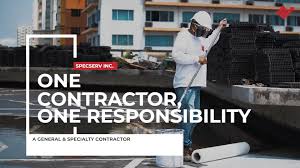
About 7.5 million people work in the construction industry. It is broken down into three subsectors: specialty trade contractors; construction of buildings; and heavy and civil engineering. It is projected that the industry will see steady job growth through 2026. More than half (485600) of those new jobs are expected to be in the specialty trading contractor segment.
Construction workers' best prospects depend on their skills, experience, willingness and ability to attain the required certifications, licenses and education. People who choose to work in specific areas, such as crane operators or other skilled workers, will have the best chances of securing a job with good benefits and a good salary.
It is likely that residential construction will continue to slow down, but it could help boost job prospects because there are more homes than ever before that will need to be serviced to maintain the interior systems. This is particularly true for line installers as well as heating and air conditioning mechanics and installs.
A variety of job opportunities should be available in nonresidential building. It is possible to expect more retail and office building, and more jobs in schools and hospitals.

A bachelor's degree in construction science or architecture with an emphasis upon management may prove to be beneficial as the economy continues to recover. This will ensure these professionals are equipped to handle the fast-growing industry's demands.
Construction managers must also be able coordinate and manage projects effectively. Their knowledge can also be applied to other workers to make their jobs easier.
Construction workers will see more opportunities as the population grows and infrastructure gets worse. Need for skilled labor will increase with the construction of new schools, office buildings, and hotels as well redevelopment of old ones.
Increased wages and promotions can be a boon for those already working in the industry. This is especially important if you have been in the business of construction for a long time.
Construction workers have a 3.7% unemployment rate. This is down from 4.2% November 2018. This decrease is due to rising interest rates and the recent collapse in the housing market that made homeownership more expensive.

Construction workers need to be prepared for a recession. Construction workers might lose their jobs or see their wages drop if this happens.
Despite these negatives the industry is expected to grow 4 percent between 2021-2031. This growth will be fueled both by increased demand in new buildings and infrastructure, and the need for permanent replacements for workers who leave their positions. Along with the increase in jobs, there will also be a high rate of separation (including layoffs, quits, and retirements), which should boost the demand for occupational skill training.
FAQ
What is a service-contract agreement?
A Service Contract Agreement is an agreement between two or more parties to provide services. The SCA defines the services and determines how much effort and time should be spent on them. It also specifies who pays for them and when and where they should start. The agreement also outlines what happens to either party if it violates its obligations.
Who provides a Service Agreement?
The service agreement between your customer and you defines the way you will provide them services. This agreement outlines your customer's responsibilities and what you must do for them. It also explains when you have to pay them.
Additional fees for services may also be confirmed in the service agreement.
Service agreements should contain all terms and conditions applicable to the contract. This includes delivery dates, payment methods, warranties and other terms.
This template will help you cover all aspects of the agreement.
What's the purpose of the service contract?
The purpose of a Service Agreement (or Service Agreement) is to describe the terms upon which a customer accepts to buy goods from you. It also defines how you will provide those services to them for payment.
The most common form of this document is called a Sales Order Form. You will need to state the products and prices that are being purchased by your customer. The order will also include any additional items, such as delivery costs, VAT, insurance, and so forth. Finally, you will specify when the order should delivery and be paid for.
You may use a different document depending the nature of the transaction.
If you are offering a service instead of selling products, an invoice might be appropriate.
If you are buying something from another person, you would likely use a Purchase Order Form.
Make sure to include all necessary information when you are creating a sales form.
Remember: The buyer will understand your sales order form if it is more detailed.
Do I Need A Legal Representative To Sign My Service Agreements?
No. You don't need a legal representative to sign your service agreements. However, you may want to appoint one as a precautionary measure.
Legal representatives are people who act on behalf of another person. You may wish to appoint someone to represent you professionally if you are a contractor.
This could also mean that you hire a solicitor or an accountant. Or it could simply mean appointing someone to look after your business interests.
In most cases, the client is responsible for appointing a legal agent. But sometimes, a legal representative is hired by the vendor.
In each case, having a legal representation means you are legally protected.
Can I cancel my agreement at any time?
Yes, but you must do it within 14 days after signing the contract. Your contract can be terminated by providing written notice no later than 7 working days before the specified end date. However, if you don't give enough notice, you may still owe the contractor money for work already carried out.
What documents are required to apply for building permits?
Along with your SCA, proof must be provided that:
-
There is adequate parking space available for visitors;
-
These routes can be used for access;
-
Any utilities are accessible; and
-
All works conform to applicable planning regulations.
Statistics
- Reasonable late fees go up to 25% per year on unpaid sums. (lawdepot.com)
- (v) Place or places of performance of the prime contract and first-tier subcontracts estimated at $10 million or more, if known. (acquisition.gov)
- Don't take their anger personally, they are mad about the situation 99% of the time. (activatemylicense.com)
- (ii) Name, address, and telephone number of each proposed first-tier subcontractor with a proposed subcontract estimated at $10 million or more. (acquisition.gov)
- While we offer all our high-quality services at competitive prices, we know that many who need our services are on fixed incomes, so we offer a 10 percent discount for seniors and military members. (homeservicecontractorsinc.com)
External Links
How To
What should a service agreement include?
Any business relationship requires a Service Agreement. It describes what you expect of each other and how to achieve it. The SA also specifies when and where you expect each party to fulfill its contractual obligations.
Here are the essential elements to a successful SA
-
Both parties agree on the scope of work and the services they require.
-
Details about the payment terms.
-
A project cost agreement.
-
Additional costs, such as VAT, etc.
-
Whether there is anything else that needs to be discussed.
-
Who will be held responsible for any problems that may arise on the job?
-
How disputes will be resolved.
-
What happens if a party breaches the contract.
-
What happens in the case of a dispute?
-
When will the contract become effective?
-
What happens if one party fails to perform?
-
What length of time will you be required to pay invoices
-
Who pays for things like travel expenses.
-
Where the money comes.
-
What happens if a client changes his mind?
-
What happens if the supplier isn't there?
-
Who has access during construction to the site?
-
What happens if the client cancels the project?
-
What happens when the product is defective?
-
What happens when the manufacturer refuses supply?
-
What happens if the equipment breaks down.
-
What happens if the project is delayed?
-
What happens if the work isn't completed within the agreed timescale?
-
What happens to the project if it isn't up-to-standard?
-
What happens if the cost exceeds?
-
What happens when the materials are not delivered in time?
-
What happens if your material arrives damaged?
-
What happens if products do not meet the standards?
-
What happens if you cancel the job before it is complete?
-
What happens if the company goes bust.